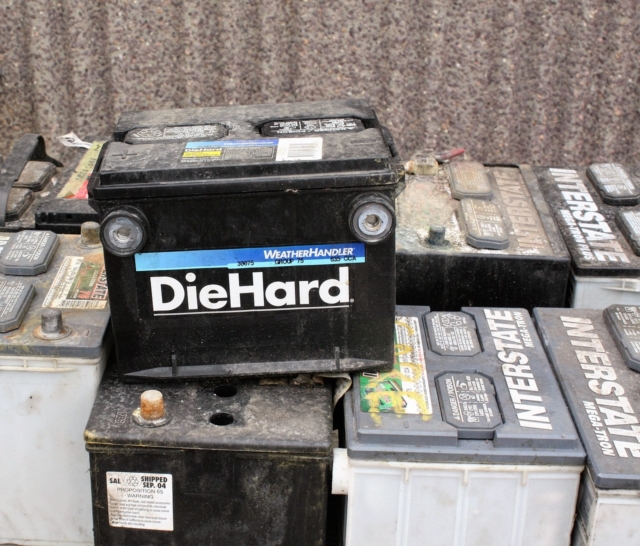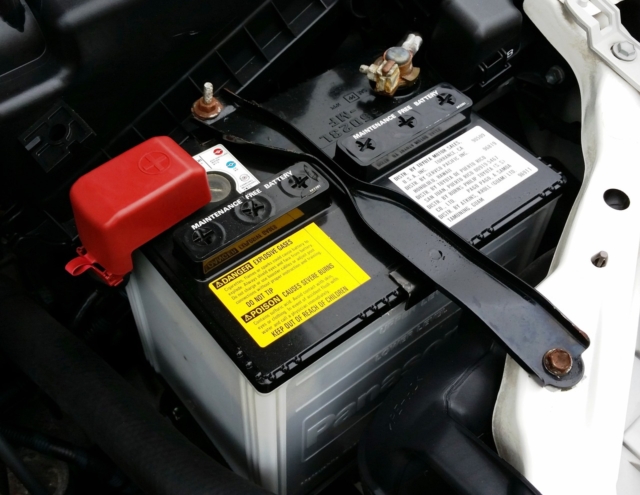No car can start or operate without a healthy car battery. It is a vital electrical component that powers the ignition system and starter motor to activate the internal combustion engine. If a car battery starts to lose power and die, you cannot start your vehicle without a jumpstart or new car battery. Either that or it will take you several attempts to start your vehicle before it finally kicks over.
We recommend you learn the signs of a dying car battery before it gives you any severe trouble in the future. After all, most car batteries do not spontaneously die without giving you some warning signs of their failing health first. Below, we are going to talk about how to recognise those signs.

The Battery Light Activates on the Dashboard
The first sign of a dying car battery is usually the battery light illuminating on the dashboard. The battery warning light activates when the car detects a weak or dying car battery with less power than usual. Your vehicle may still be driveable and operational, but there is no telling for how long.
Take a battery warning light seriously. Do not wait until you have trouble starting your vehicle or get stranded before seeking a battery replacement. Take advantage of the available opportunity to drive to an auto shop or auto parts store to purchase a replacement battery if needed.
We recommend you test the car battery to see if it can hold a charge before spending the money on a new battery. Sometimes, the battery light activates because of a faulty electrical connection or computer programming error. So, if your battery can still hold a charge despite the battery light turning on, wait to see if the battery light turns off after a few days. In most cases like this, the battery light will turn off if the battery is still good.
Trouble Starting the Car
A dying battery is the most common reason motorists have trouble starting their cars. Since a lot of power is drawn from a car battery to energise the motor and start up the engine, the inability to start the vehicle usually indicates low battery power. You could jumpstart the battery to turn on your vehicle, but you’ll have the same problem again after turning your car off.
Based on our experience, dead batteries are Australians’ number one reason for breakdowns. Please don’t rely on a jumpstart to save you because you may end up stranded somewhere where no one can give you one. All you can do is notice the signs of a weak car battery and then replace it before it dies completely. That is the best way to prevent yourself from getting stranded.

Jumping the Battery Too Often
Needing to jump a car battery does not always mean the battery is bad. For example, if you have not driven your car for a few weeks, the battery will likely lose its charge because the alternator has not recharged it for a long time. But that does not mean the car battery is bad.
What you should do is jumpstart your vehicle to start it up again. Then, drive your car around for about 20 to 30 minutes to allow the alternator enough time to recharge the battery. Once you turn off the car, wait about 20 minutes and test the battery to see if it still holds a charge. If there is still a charge, the car battery is healthy. But if there is a weak charge, the battery is bad and needs immediate replacement.
Daily or weekly jumpstarting is an obvious sign that your car battery is bad. It is not good to jumpstart your battery regularly because it could risk damaging your car’s electrical system and components. Jumpstarting is only supposed to be done to get your vehicle to a safe location for repair or replacement parts.
Car Will Not Start
There are many reasons why a car will not start at all, such as a completely dead car battery without any power left in it. But before you spend money on a car battery replacement, check to make sure some other internal component is not the cause of the problem.
Here are the most common reasons why a car will not start:
- Dead battery
- Bad ignition switch
- Jammed steering lock
- Bad timing belt
- Worn-out spark plugs
- Old or malfunctioning starter motor
- Dead alternator
- Damaged distributor cap
It may take a professional auto mechanic to detect some of these problems. So, what you can do in the meantime is test your battery to see if it is holding a charge. If it is, but your car still will not start, then you will know the car battery is not the cause of the problem. From that point, you should call a tow truck company like ours to tow your car to an auto shop for further investigation.